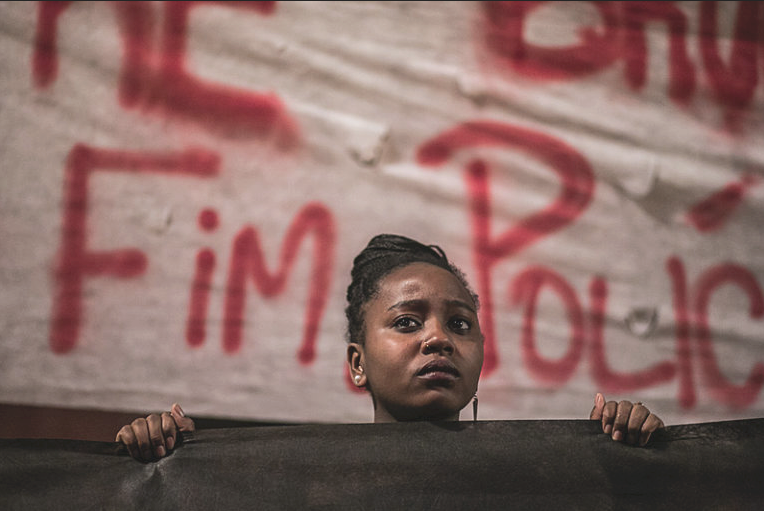Recently, we witnessed a real national commotion in Brazil: thousands of women took to the streets for their lives, for the lives of their friends, neighbors, daughters, nieces, and granddaughters. For the right not to be punished for having been raped, for a girl not to be forced to carry to term a pregnancy that puts her existence and future at risk. The motive soon spread through the halls, streets, bars and social networks: “a bill that defends rapists” they commented in bewilderment.
But how did we get here? Much more than just a Brazilian issue, we can connect movements on a global scale that have been intense over the last decade. They go hand in hand with the growth and attempted expansion of the domains of anti-democratic forces and influential international groups that despise democratic values.
Agendas such as #MeToo #Niunamenos #EleNão now witness a new edition: #Criançanãoémãe (A child is not a mother). However, the abortion agenda is closely linked to the little credit many societies give to the crime that sometimes gives rise to it: rape, whether of an incapacitated person or an adult woman.
It is crucial to understand how setbacks in women’s reproductive rights are related to the presence and violent language of extremist political leaders and disinformation processes. Examples include Donald Trump, convicted of rape, and the concomitant reversal of the Supreme Court decision on the understanding of Roe v. Wade in the United States, as well as extremist Javier Milei‘s speech in Argentina, which equates abortion rights with “qualified homicide.” And it creates a widespread sense of panic and misinformation about a public health issue that is central to the lives of half the population of their country.
The election of extremists like them, an international network that supports figures like Jair Bolsonaro, also incites violence in ways never seen before. It was not just the attacks against institutions and on January 8, 2023. After four years of disastrous acts and violent incitement to coups and sexism of all kinds by the then President of the Republic, in 2022 Brazil recorded the highest number of rapes in its history.
Yes, it makes a difference to act against proper care for those who suffer rape, even more so when the same perpetrator of women becomes president. If in 2021 there were 68,885 occurrences, in 2022 there were 74,930, an increase of 8.2%. Of the victims, 61.4% who had any case recorded in 2022 were at most 13 years old.
Racism is also a relevant factor. In 2021, 52.2% of victims were black or brown, but in 2022, the percentage of black or brown victims increased to 56.8%. In profiling the aggressor, it was identified that, in 64.4% of cases where the victim is up to 13 years old, the aggressor is a family member. When the victim is over 14 years of age, in 37.9% of cases it is also a family member.
Perpetrators of women share this fundamental value: they do not consider rape a serious crime. They sometimes support family members who rape, soccer players who rape, or even call for known rapists to be pardoned or not even brought to court. Supporters of rapists, always ready to back down when it comes to women’s rights, have names that bear repeating. Today’s are Sóstenes Cavalcante (PL-RJ) and Arthur Lira (PP-AL). In addition to working for the rollback of rights already won by women, what else do these acronyms have in common? PL and PP are two parties that are part of the so-called Centrão (Big center).
Another member of Centrão is Eduardo Cunha, who also voted for and supported the impeachment process of Dilma Rousseff (the only elected president in the country’s history, impeached without factual evidence in 2016). This is the same politician against women’s rights who in 2015, being president of the Chamber of Deputies, introduced bill 5069, which made legal abortion in cases of rape more difficult. Voting for Centrão has generated this legacy against women in Brazil: presidents of the Chamber of Deputies who vote for and promote machismo and the most vile sexual violence.
How to trace the history of these gentlemen who consider themselves protectors of “morals and good manners”, but support a girl being punished with 20 years in prison for having an abortion, and turn a blind eye to cases of rape by family members, friends, and even their church?
Historical origins of violence against women
As old as Portuguese colonization, the practice of slavery and sexual exploitation of women are foundational marks of Brazil. Since the arrival of the colonizers in the country, women’s lives in Brazil depended on the bonds they were able to establish with men.
Orphans were sent from Portugal to populate the colony, and even wealthy white women had arranged marriages as their only option for livelihood. The other possible alternative was to retire to a convent. Royal policy, however, prohibited, from an early age, the creation of female convents in the colony, in order to increase the number of Portuguese and their descendants. In 1677, the first women’s convent in Brazil was founded: the Convento das Clarissas do Desterro, in Bahia. However, the initiative was an isolated action.
Most of the women — indigenous, African or white — lived in conditions of consensual union or concubinage. In urban and rural Brazil, women and men attended Roman Catholic services and joined confraternities or formed their own informal, domestic religious practices at home or in celebrations commemorating the Virgin Mary and other saints. According to the studies of historian Carole A. Myscofski of Illinois Wesleyan University, women were simultaneously marginalized, misrepresented, idealized and demonized when they attempted to fight for their freedom.
Despite being restricted for a long time to the private sphere, over time women articulated themselves from what was reserved for them, sometimes the domestic world, philanthropy, and even the Churches themselves. These spaces of socialization can also be spaces of resistance and political articulation. This is how today we are witnessing the organization of fronts such as the Evangelical Front for the Legalization of Abortion, working together with other diverse groups such as Catholics for the Right to Decide and the Polis Institute, which unite against the criminalization of black and peripheral girls.
Therefore, it is interesting to see how the current abortion bill (or would it be the rapist’s bill?) marks another moment in the history of a part of Brazil that still insists on going against the life and well-being of women from early childhood. But, fortunately, it also marks the hope and resistance of women, who together are organizing and marching in the streets.
*Translated by Janaína Ruviaro da Silva from the original in Spanish.











